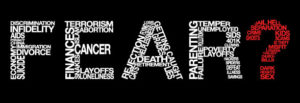 A week or so ago, a man and woman met at the register, and in response to a poster advertising a store event where the author of a book on Trump and golf was to speak, they began a conversation. Both liked Trump. Neither liked what the book purported to describe. After that beginning, I could not hear well. The ambient noise of the store and my own work kept me focused elsewhere, but I could see them shaking their heads — yes, no, disgust, etc. At the end, I did hear this: “They want what we have.”
A week or so ago, a man and woman met at the register, and in response to a poster advertising a store event where the author of a book on Trump and golf was to speak, they began a conversation. Both liked Trump. Neither liked what the book purported to describe. After that beginning, I could not hear well. The ambient noise of the store and my own work kept me focused elsewhere, but I could see them shaking their heads — yes, no, disgust, etc. At the end, I did hear this: “They want what we have.”
I did not hear their discussion. I do not know any details of what they might have meant. However, that sentence, those undefined and mysterious references freighted with connotations, struck me then as the core idea behind Trump’s unwavering support among 40% of the electorate It is a perfect Rorschach test. The “they, “we” and “have” all inhabit a boundless territory. Those words are a version of a code.
The “want” is clear — desires exist out there, apart from those who are “we”. Someone or group wishes to make those desires a reality in terms of possession. But any listener must fill in the space behind each of the pronouns and the other verb. At the base of the sentence is the emotion of fear — of loss, dispossession and fear of the “they”.
In this sentence, that desire is pretty clearly seen as a threat. That determination of threat looses a whole other set of possibilities that culminate in this question: how does one respond to a threat?
Amorphous, free-attaching fear is very difficult to counter, particularly when right wing media stokes and creates fire-storms of resentment, lie and myth. Whomever the Democrats nominate, he or she will have to find ways to defuse it or counteract it with a message that provides the starkest contrast possible to fear. A sense of peace? A call to courage? A relentlessly honest appraisal of our political condition and solutions that offer repair and reform, and where necessary demolition and a reimagining and rebuilding? That is what I will be listening for in the candidates. Not the one who attacks Trump the most, but the one who acknowledges how close we are to the precipice and what may be done to reverse that momentum.